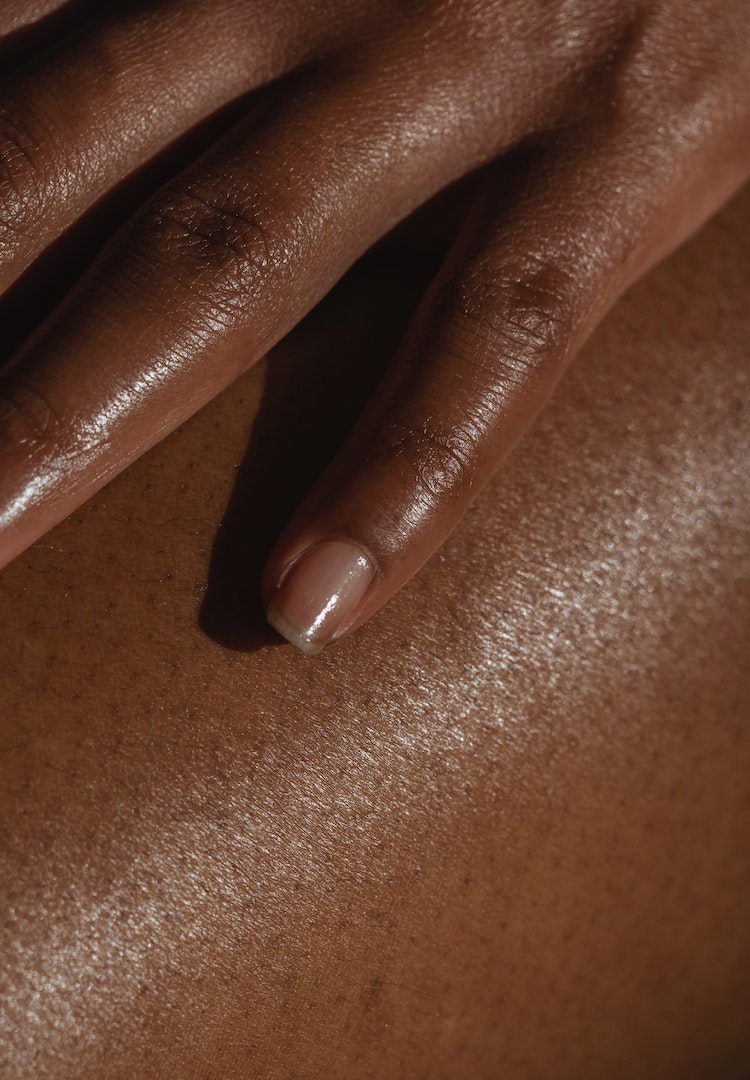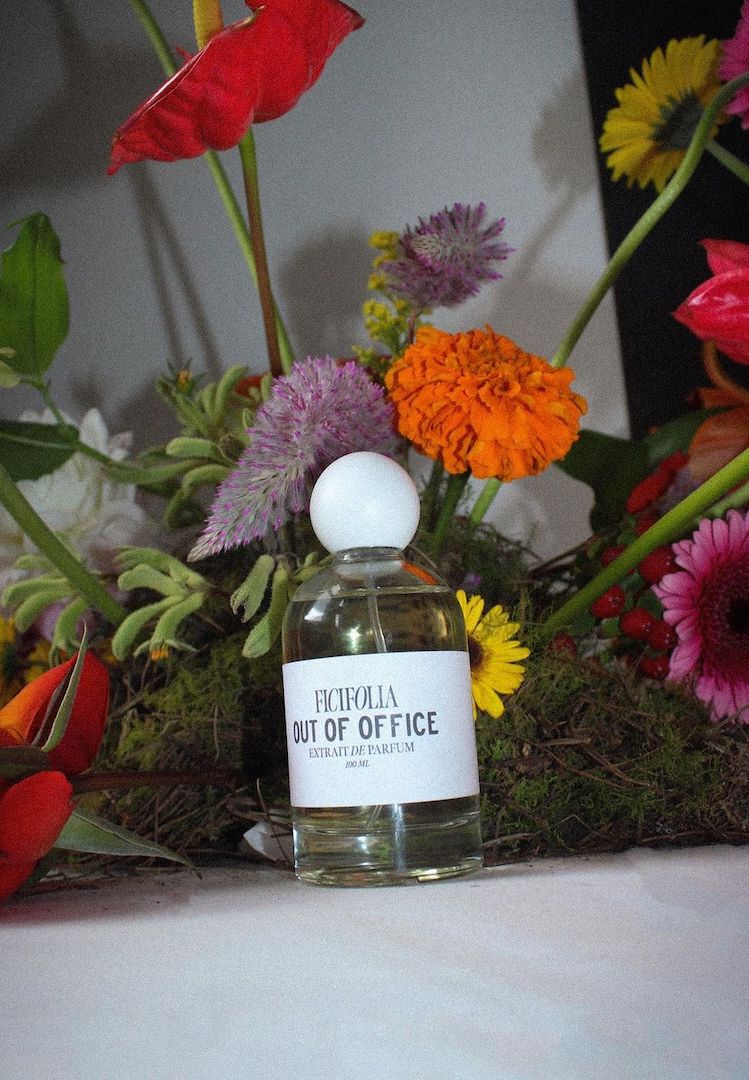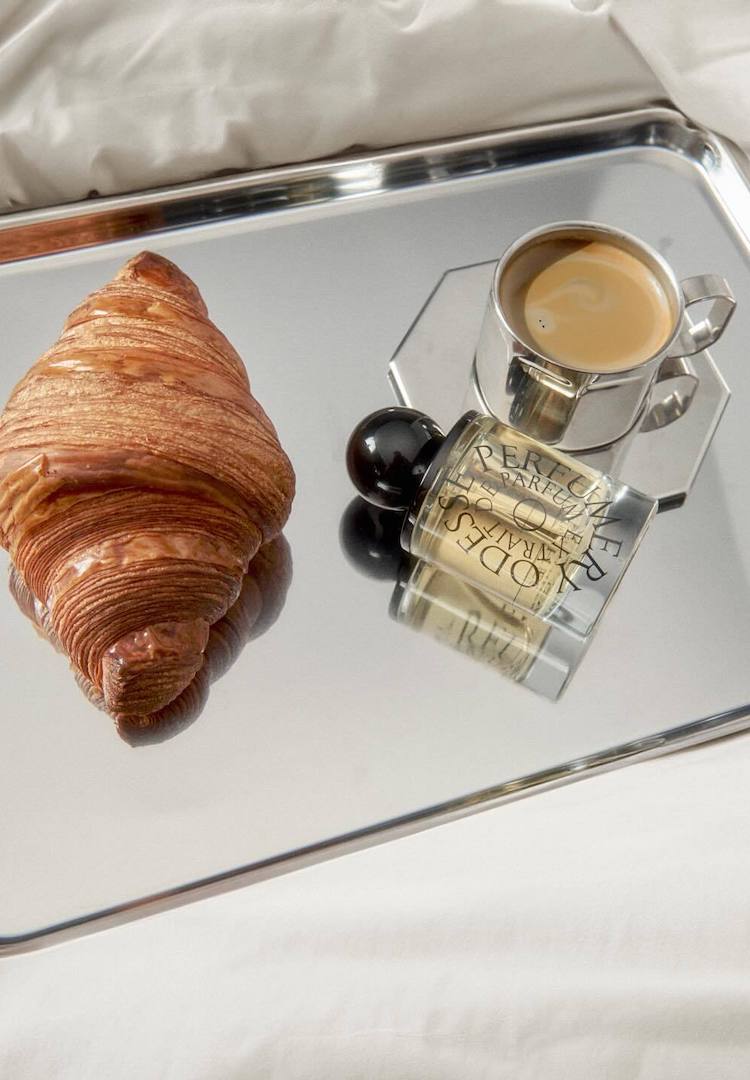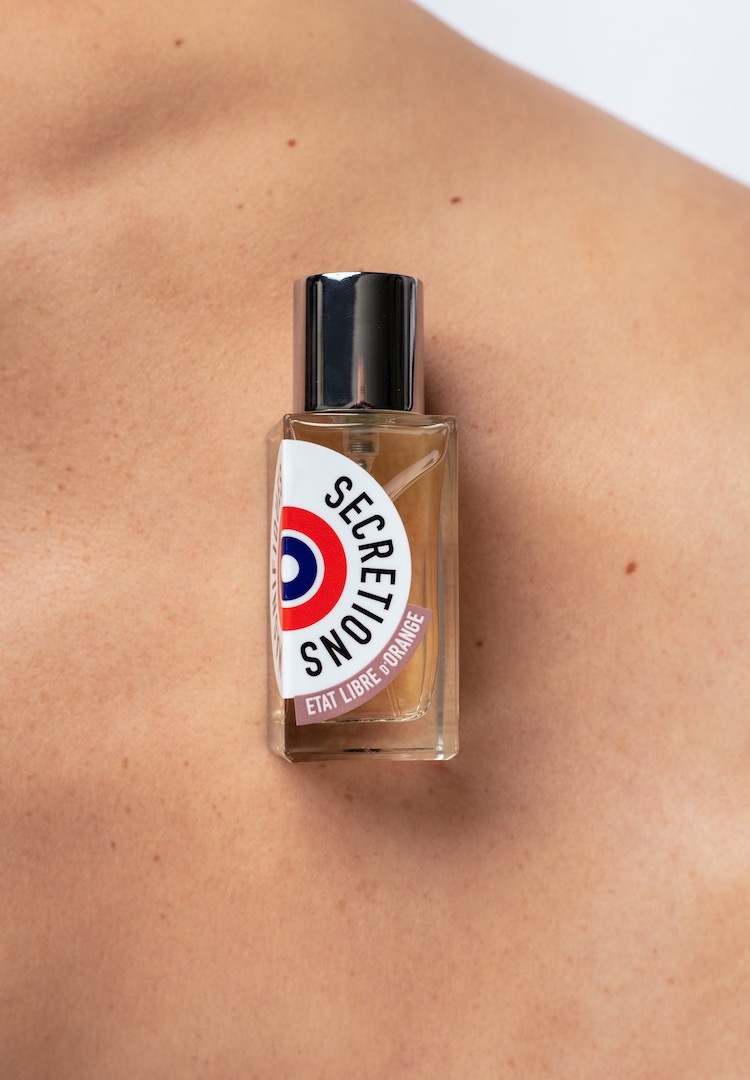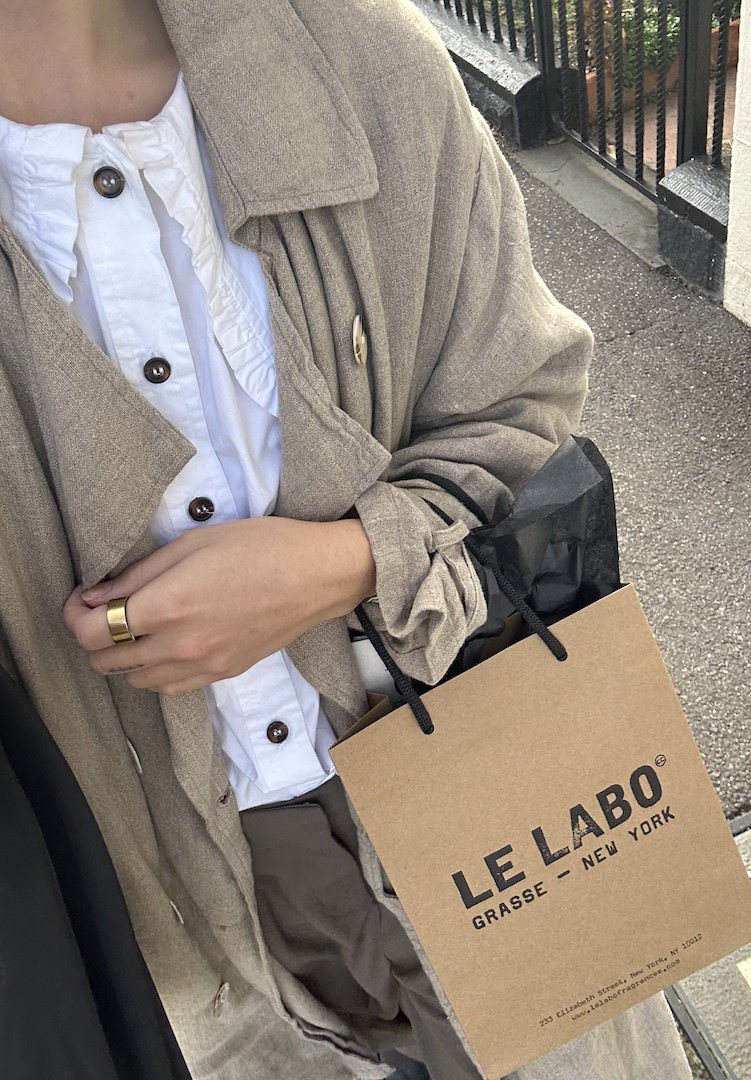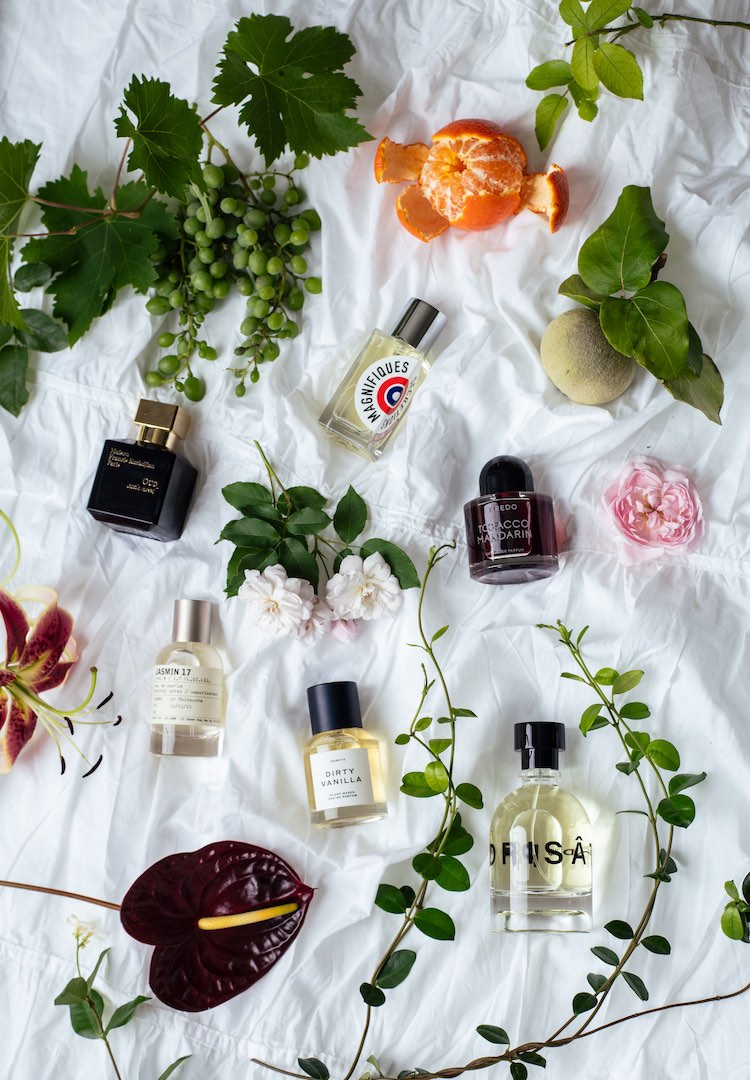What exactly is perfume etiquette, and how can I master it?
IMAGE VIA @FICIFOLIAFRAGRANCES/INSTAGRAM
WORDS BY GENEVIEVE PHELAN
Brush up on your fragrance manners.
I’ve long been a fragrance romantic, smitten with the storytelling and romance tied up in perfumery. But over the years, I’ve been oblivious to the actual science behind a scent, or how to describe a perfume’s profile at first sniff. I just know if I like it or I don’t like it, much like my approach to wine tasting.
My perception of a signature fragrance, or what I love in a good spritz, has changed countless times over the years. From a 20-year-old dousing herself in YSL’s Black Opium to a current lover of Vilhelm Parfumerie’s Dear Polly, I’m a long-time admirer of a thoughtful fragrance collection.
We like nosy people. Don’t be shy, head to our Beauty section for more.
In saying this, I have no knowledge of the art form behind the fragrance. It’s only when I recently caught up with 24-year-old fragrance brand founder Sophie Marcoux that I learned some hectic home truths about the way my lifestyle could be interfering with my repertoire of rotating scents.
Turns out there are some small, habitual tendencies that could interfere with the integrity of a meticulously-crafted fragrance cocktail. Here, Sophie lends her expertise to decode the world of ‘perfume etiquette’ to us, so we’re making the most of our boujée bottles.
What is perfume etiquette, according to you?
Perfume etiquette is the most correct way of experiencing a fragrance, maintaining the integrity of the perfume, and respecting any unconsenting noses in the process. Perfume etiquette informs you how to select your fragrance for the day, how and where to spritz, how to properly store your perfumes and when to not wear fragrance. I’ve honed some skills in the process of building my own fragrance business, Ficifolia.
Perfumery is a beautiful marriage of science and art. Breaking the rules of science and art can be disastrous, but sometimes it can lead to something beautiful. I look at perfume etiquette the same way – some rules are rules for a reason, and others can be broken to allow for a different and new experience. You just need to know how to break the rules appropriately.
How have you changed your fragrance manners over time?
I’ve realised some common fragrance misconceptions that actually affect the integrity and longevity of a perfume. I’ve also learned when and how to break or tweak a perfume faux pas.
Dab, don’t rub. Rubbing your wrists after spritzing is a commonly practised error. Instead, gently dab. By rubbing the wrists together, you are creating heat and allowing precious fragrance molecules to prematurely release.
As a general guide, we are told to spritz on our pulse points (wrist and neck). As perfume expels off at the rate of your skin temperature, I’ve learned a hack to have a fragrance last all day is to spritz a little in my hair, as hair doesn’t generate heat. Just be wary though – if you do this, please do not use heat on your hair after spritzing, as most perfumes are alcohol-based and you don’t want to fry your hair!
I previously avoided layering perfume, as it is a controversial concept. I was also very intimated by the idea and was afraid of doing it wrong. Over time, I have learned a couple of tricks that have helped me master layering fragrances:
- Use a scent strip for your first attempt. Spritz each fragrance on separate tester strips and then waft them together and see how they smell. This is so that you aren’t stuck with a terrible blend on your wrist all day, should you not like it!
- Stick to two perfumes. Any more will result in an overly complex blend that is not likely to smell pleasant.
- Keep the scents separate. Mixing two perfumes out of a lab environment might result in an unstable fragrance, which may lead to a skin reaction. It’s best to spritz one fragrance on your left side and the other on the right and let the fragrances blend in the air around you.
- Mix fragrance with a perfume oil. I love to dab a pure perfume oil on my wrist and then spritz my fragrance of choice on top – just to add an extra note to my perfume, rather than blending it into an entirely different fragrance.
I like to use vanilla or lavender oil to add some extra sweetness to Intermission, which is a spicy, earthy, woody scent. This completely changes the profile and adds a personalised flair to the fragrance.
Why are we repelled by some fragrances on certain people, but like the smell of them on others?
A fragrance can smell different on two people as perfume performs differently depending on the skin’s natural scent, pH level and temperature. Acidic, hot and dry skin burns off perfume faster and subdues the notes. Basic, cold and oily skin enhances top notes and typically retains the fragrance longer.
Perfume can also smell different when impacted by external factors like the fragrance of the person’s laundry detergent or body lotion. Shoutout to all the people out there traumatised by the specific fragrance of their exes.
So many beautiful perfumes have become tainted by becoming synonymous with our ex-lovers. The olfactive senses are closely linked to memory, so you may not like a smell because it subconsciously (or consciously) associates it with something negative.
Give me an example of some bad perfume etiquette that I’m probably practising right now.
Wearing perfume to attract someone: we have suffered decades of designer perfume brands showing how a beautiful woman wearing their perfume captures the heart of a handsome brooding man. Perfume is an intimate experience that should be employed to empower yourself. If someone else likes the way you smell, that’s just a perk!
Storing perfume in direct light, in your car or in your bathroom: when you break it down, the raw materials which make up a fragrance are tiny molecules. These molecules can change when exposed to steam, heat, light and sun over time, therefore changing the scent profile of your perfume.
Consider your laundry detergent and body lotion: your beautifully smelling laundry detergent or lotion may be interfering with the integrity of your perfume. If the notes lingering on your clothes and body don’t compliment your preferred perfume, this might explain why a fragrance smells different on a scent strip or someone else compared to your skin. Look for unscented products if you intend to wear perfume every day.
Is it a perfume or deodorant occasion?: If you’re on a plane, in a doctor’s office, hospital, or any tight confined space, put the perfume down and just use deodorant. This is out of respect to others who may have sensitives, allergies, or be prone to headaches and migraines.
How do I better match my perfume choices with my everyday lifestyle tendencies?
My advice is to pick a fragrance that suits the activity of the day or night, as well as considering the weather. Going out for brunch? A clean, floral, and fresh perfume would be perfect. Going out for a sexy date night? Think oud, amber, and warm woods. If it’s a beautiful sunny day, you’d want to avoid wearing anything too strong and heavy as you’ll find the heat in the air will amplify your perfume in a bad way.
Tell me about the intersection of the alcohol we consume and the perfume we wear.
The general rule is to not wear perfume at a wine tasting or degustation. The reason is that it can overwhelm your olfactory senses and impair the integrity of wine and food. For example, your lovely rose and oud fragrance is going to inhibit the beautiful stone fruit elements in a chardonnay and ruin the experience of the wine.
This is a rule I’m open to breaking because let’s face it, I’m not going to let my perfume spoil any opportunity for a glass of vino. You can pair your perfume just as you pair your wine/drink with your food. If you know you are going to be drinking a particular wine or cocktail, by comparing the notes of the wine or spirit to your own perfume collection, you can pick a complementary fragrance that’s going to enhance your beverage choice.
For more tips on how to apply perfume and layer your fragrances, try this.

